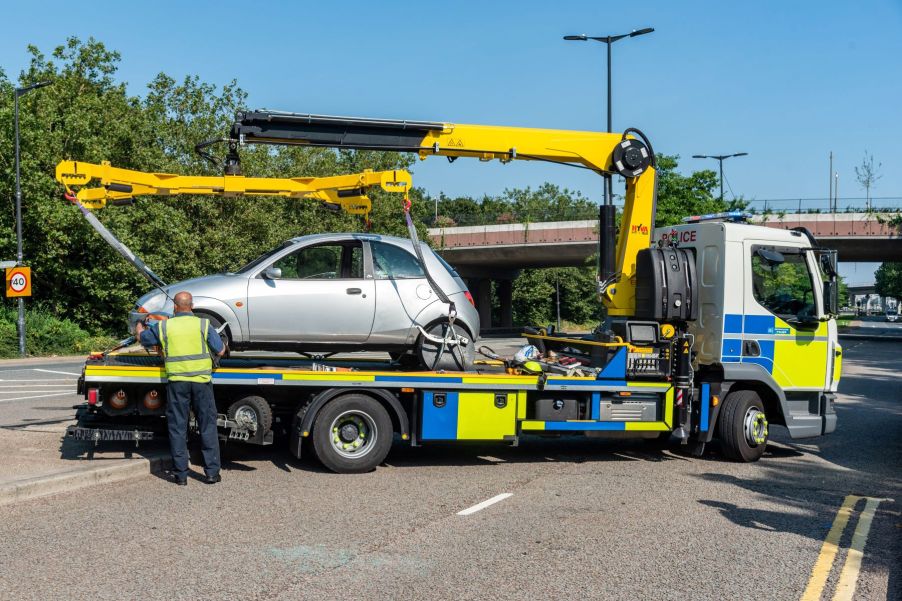
Voluntary Repossession Can Take 100 Points off Your Credit Score
As a last resort, some who fall on hard times will voluntarily turn their car over instead of having it taken away in a repossession. You can see why someone would think that’s the best thing to do when you’ve run out of options after car buying a new ride. Maybe it would earn you points with creditors, debt collectors, or major credit bureaus because it saves them from having to locate and repossess the vehicle, right? Does it work that way? If you voluntarily surrender a car to your creditors, does it hurt you or help you?
The pros and cons of voluntary repossession

In these uncertain financial times, it’s easy to see how someone could fall behind on vehicle payments. A voluntary repossession is where you surrender the vehicle before creditors come and take it from you. It’s then sold so the creditor can try to recover some of the debt you owed them.
On paper, the two terms are pretty similar. There’s also a peace-of-mind benefit because if you turn the vehicle over, you do so on your terms. If it’s repossessed, it might just disappear overnight, or the creditor could send someone to come and take it from you while you’re out and about, leaving you stranded.
There’s also a chance that, since you’re taking responsibility for your debt, that lenders could view the repossession less negatively. You may save yourself a little money by avoiding extra costs, such as towing charges.
However, according to Experian, that voluntary surrender still doesn’t absolve you of the debt. Yes, the lender will resell the vehicle and put what it makes from the sale on your debt which you still owe. However, if you don’t pay the remaining balance, the case may be turned over to a collection agency. That, in turn, goes on your credit report for about seven years. From there, if the remaining balance ends up forgiven, the amount will be considered additional income, and you’ll pay taxes on it.
Is it really worth it to volunteer your car for repossession?
Repossessions show up on your credit report whether you surrender the vehicle voluntarily or not. If you surrender it, that will be noted on the credit report along with the remaining balance. However, neither a voluntary repossession nor a standard repossession reflects well on your credit history.
While a voluntary repossession may do slightly less damage to your score than a regular repossession, it will still drop your credit score by 100 points because of late payment reports. The repossession stays on your credit report for seven years, which seriously hinders your ability to qualify for additional loans. However, if your car gets repossessed without your involvement, you should expect to receive all of these adverse outcomes in addition to others.
Experian explains that payment history is the most influential factor when calculating your credit score and makes up 35% of your FICO Score. Aside from keeping you from being able to secure credit and loans moving forward, it may keep you from being able to get another financed vehicle.
How can you prevent your vehicle from being repossessed?
If you can avoid car repossession, you should strive to do so. Communication with your lender is critical. As soon as you realize you’re going to have problems making timely payments, take a look at the situation carefully. Is the payment issue a one-time thing? Would skipping one or two payments help? Would restructuring the loan help you pay the remainder of your loan?
Contact your lender sooner rather than later to possibly negotiate a deal that will keep damage to your financial situation to a minimum. If they grant you a deferment, you’ll be able to skip one to two payments without defaulting or repossession. The payments and interest will be tacked on to the end of your loan.
If your credit is currently in good shape and you can prove you have the capability to make future payments, you might be able to work with your lender on a restructured payment plan for the rest of your loan. Make sure any changes from the original agreement are put into writing for future reference to safeguard your financial future.


